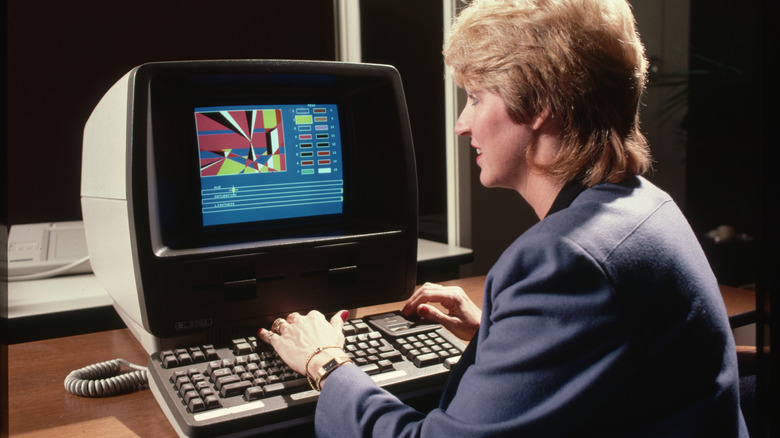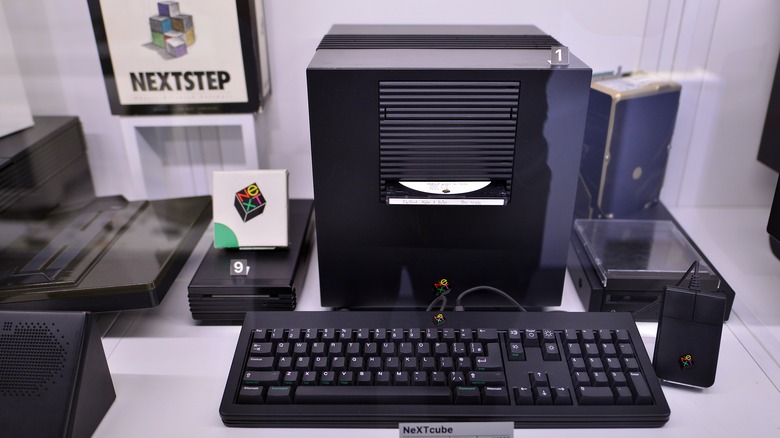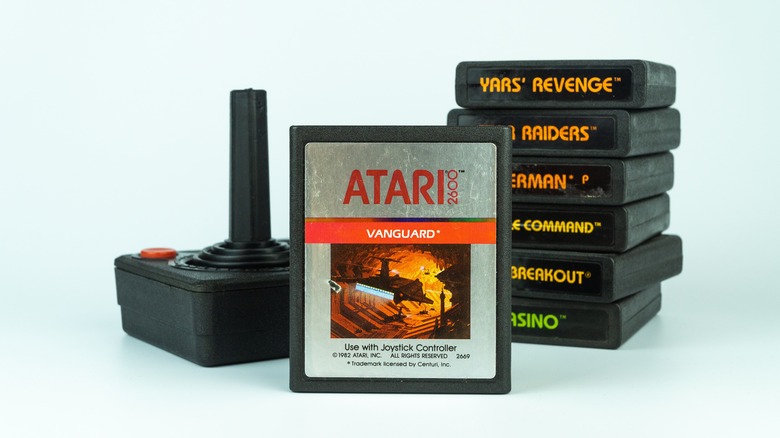5 Forgotten Computer Companies That Helped Shape The Tech World
In the fast-paced and ever-changing world of technology, companies come and go like shooting stars, leaving behind profound impacts that shape the course of the tech industry. While we often celebrate the giants of the tech world, it's essential to acknowledge the lesser-known players who have made significant contributions but have been overshadowed by time and changing tides. Though short-lived or unable to keep up with evolving trends, these forgotten computer companies have left impressions that continue to influence the tech landscape.
The stories of these forgotten tech companies serve as a reminder of the transient nature of success in the tech world. They showcase the importance of continuous innovation, adaptability, and the ability to foresee the changing needs of consumers and businesses alike. In exploring five forgotten computer companies that helped shape the tech world, we delve into the stories of these unsung heroes, whose legacies, though often overlooked, have left indelible imprints on how we live, work, and communicate in today's digital age.
NeXT
NeXT, a company founded by Steve Jobs in 1985 after he departed from Apple, might be a forgotten player in the tech world, but its impact cannot be underestimated. Specializing in computer workstations, NeXT unveiled its groundbreaking NeXT Computer in 1988. While sales were limited, the company's contributions to technology and computer innovation were far-reaching.
One of NeXT's most significant influences was in object-oriented programming and graphical user interfaces, which laid the foundation for future advancements in the tech industry. The company developed OpenStep and WebObjects, which became influential in their own right. In 1997, Apple acquired NeXT for $400 million, marking a pivotal moment as Steve Jobs returned to his co-founded company. The impact of NeXT on computer technology was undeniable. The NeXT operating system eventually merged with Mac OS, forming Mac OS X and transforming Apple's computing ecosystem. The first web browser and several well-known video games, including Doom and Quake, can be traced back to NeXT.
Saying the NeXT Computer was expensive is an understatement — the machine set you back $6,500 during its release, which is almost $16,000 in 2023. It may not have been a commercial hit, but it left an impression in the tech world. The iconic black cube-shaped case earned the nickname "The Cube," making it a distinctive addition to the tech landscape. Though NeXT may not be a household name like some of its contemporaries, its legacy lives on through its technological contributions.
BBN Technologies
Founded in 1948, BBN Technologies, formerly Bolt Beranek and Newman Inc., is an American research and development company that has left a lasting impact on various fields thanks to its innovative contributions and groundbreaking projects. One of BBN's most significant achievements was its involvement in the early development of computer technology and time-sharing systems. They were pioneers in integrating computers with medicine, paving the way for advancements in medical technology that we benefit from today.
During the 1970s to the late 1980s, BBN's contribution to the tech world reached new heights with the development of Interface Message Processors (IMPs). These IMPs were instrumental in the history of ARPANET, the precursor to the modern internet. By creating IMPs as experimental packet-switching communication systems, BBN laid the foundation for modern routers and the interconnected web we use for communication today.
BBN's impact extended to the early days of email communication, too. The company and superstar employee Ray Tomlinson were instrumental in adding the "@" sign used in email addresses and contributed to developing network email, a foundation for modern email systems. BBN also had a hand in shaping the future of education. Their education group developed the Logo programming language for children, making programming accessible and fun for young learners.
In 2009, Raytheon, another prominent tech company, recognized BBN's potential and acquired it. Since then, BBN has continued its innovative work, with offices in different locations, contributing to various networking technologies and satellite networks.
Atari
Atari, though not as "forgotten" as other companies on the list, is a company fading from public consciousness as time passes. The company, founded in 1972 by Nolan Bushnell and Ted Dabney, played a significant role in shaping the tech world, particularly in gaming and entertainment. The company pioneered arcade games and home video game consoles in its early days, bringing interactive entertainment to the masses. Atari's success extended beyond video games, symbolizing the triumph of Silicon Valley and inspiring future tech luminaries, including Steve Jobs, who worked at Atari before co-founding Apple.
One of Atari's groundbreaking achievements was transitioning video games from coin-operated arcades to home consoles, such as the iconic Atari 2600, which expanded the gaming market to families and children. This move revolutionized the gaming landscape and laid the foundation for today's booming gaming industry.
Atari's contribution to gaming conventions and features was notable, often arising from creative improvisation due to hardware limitations. The era of Atari brought about novel gaming experiences and conventions, which continue to influence present and future game design. Understanding gaming history, as highlighted by Professor Ian Bogost in an interview with Technique, helps grasp how these conventions shaped the gaming industry's trajectory and will continue to drive innovation in the future.
Though Atari faced its share of challenges and ownership changes over the years, its impact on the tech world remains significant. The company's innovations and contributions paved the way for interactive entertainment and gaming experiences that captivate audiences worldwide.
Sun Microsystems
Sun Microsystems, a tech company founded in 1982, played a crucial role in computing, offering computers, software, and IT services. One of Sun's most notable achievements was the development of Java, a programming language that revolutionized web applications and introduced the concept of "write once, run anywhere." Java's cross-platform capabilities challenged individual operating systems and became popular for various web-based applications. The company's operating system, Solaris, was another milestone in its journey. Sun actively supported open-source software, collaborating with AT&T to develop Solaris. Sun's SPARC processors and ZFS file system also left a lasting impact on the tech industry.
During the dot-com bubble, Sun faced challenges but adapted by shifting focus, introducing innovations like the UltraSPARC processor, and exploring grid computing. Sun also made strategic acquisitions, expanding its product portfolio to cater to changing market demands. The company's utilization of different processor architectures, including SPARC and x86, showcased its commitment to exploring various technological avenues.
Sun Microsystems' commitment to open-source movements and its early advancements in cloud computing and virtualization also positioned it as a company ahead of its time. The legacy of Sun's contributions to the tech world is evident as its technologies continue to serve as influential bedrocks for modern computing and software development.
In 2010, Oracle acquired Sun Microsystems, marking a significant moment in the company's history. Though its presence may have dimmed over time, Sun Microsystems' innovations and technological advancements undoubtedly influence the industry's trajectory.
Commodore International
Commodore International was a giant in shaping the home computer industry. The company's history is rich with milestones, innovations, and popular products that have impacted computing and gaming.
One of Commodore's most iconic creations was the Commodore 64 (C64), a highly successful home computer released in 1982. With its 64KB of RAM, advanced graphics, and sound capabilities, the C64 quickly became the best-selling computer ever. Its aggressive price point of $595 made it accessible to a broad audience and contributed to its massive success, selling millions of units worldwide. The C64's in-house technology and competitive pricing were crucial factors that cemented its place in computing history.
Commodore's influence extended beyond hardware to include innovations in software and gaming. The C64's popularity sparked a new era of gaming and digital creativity. Many school kids and teens learned to program in BASIC on the Commodore 64, paving the way for the development of the gaming industry and modern game design. The passion and dedication of these young innovators in the tech industry are evident in the Commodore's history, highlighting their crucial role in shaping the gaming world as we know it.
Unfortunately, despite its early successes, Commodore International faced internal instability, financial challenges, and legal battles. The company eventually declared bankruptcy, leading to changes in ownership and the Commodore brand's evolution. Despite its eventual decline, the legacy of Commodore International endures as a pioneer in the home computer industry and a catalyst for the gaming revolution.





